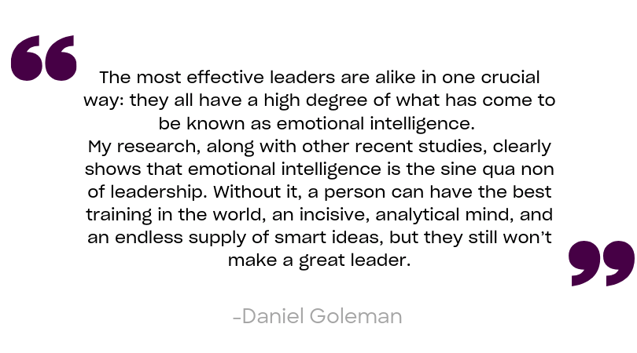What Are the Characteristics of an Effective Leader?

There are many schools of thought about what comprises good leadership, including theories that focus on leadership traits, behaviors, values, personality and character, to name just a few. Given the multiplicity of views on leadership, it is helpful to look at models that consolidate meaningful data and research to come up with an integrated view on the attributes of a good leader.
Defining Leadership
One classic understanding of good leadership was derived by Kouzes and Posner in The Leadership Challenge, who use data from over 1.3 million people about the observable skills and behaviors of leadership. They found that despite differences in culture, gender, age, and other variables, good leaders effectively model the way, inspire a shared vision, challenge the process, enable others to act and encourage the heart.
Another overall definition of leadership based on robust research comes out of the Center for Creative Leadership (CCL), which has been conducting scientific research in the field of leadership development for nearly 50 years and currently owns the largest leadership research database in the world. Based on this research, CCL offers a concise definition of effective leadership as “a social process that enables individuals to work together to achieve results.”
What’s useful about this definition is that it describes effective leadership as a social capability that can occur at any level in an organization where people influence each other. Leadership is, therefore, more dependent on personal attributes rather than a position within the organization.
The Characteristics of an Effective Leader
Another integrated view of leadership is reflected in a recent report by Mckinsey & Company, which reviewed the major schools of leadership, including traits-based, behavioral, situational, functional and psychological perspectives. The McKinsey Insights 2019 report defines effective leadership as “a set of behaviors that, in a given context, align an organization, foster execution and ensure organizational renewal.”
The Mckinsey & Company report also points out that good leadership is enabled by an underlying set of both skills and mindsets. Mckinsey & Company highlights five attributes of effective leadership:
- Leadership comes alive in the behaviors that are used, felt and observed across an organization.
- Leadership behaviors are highly contextual depending on each organization.
- Leaders must be able to create organizational alignment, execution and renewal.
- A leader’s ability to demonstrate effective leadership reflects relevant skills realized through real-life experience and behaviors.
- Leaders must develop the right mindsets based on introspection and self-awareness.
The McKinsey report highlights the inclusion of competencies such as self-awareness, introspection, constructive attitudes and mindsets for effective leadership. In fact, it is these social and emotional competencies that distinguish the good leaders from the great ones.
Emotional Intelligence and Leadership
In his foundational work on emotional intelligence and leadership, Daniel Goleman articulates how someone’s Intelligence Quotient (IQ) and technical skills are important, but how emotional intelligence is the essential, distinguishing characteristic of great leadership. “Without it, a person can have the best training in the world, an incisive, analytical mind, and an endless supply of smart ideas, but they still won’t make a great leader,” according to Goleman in his classic Harvard Business Review Article What Makes a Leader.
Emotional intelligence, in other words, is a critical driver for effective leaders. It is defined as the ability to know and handle ourselves and our relationships, and includes the competencies of self-awareness, self-management, motivation, empathy and social skills. All of these apply directly to leaders:
- Self-Awareness. Having an intimate knowledge of one’s inner emotional state. Effective leaders know their strengths and weaknesses, when they’re working in flow and when they’re over-worked. Knowing themselves, including their capabilities and limitations, allows them to reach their maximum potential and take care of their own needs.
- Self-Management. Being able to direct oneself effectively. Knowing how to get things done, how to organize tasks and how to avoid procrastination. Being able to generate energy for projects while being calm when needed. Making decisions quickly when necessary while also slowing down to consider all the options on the table.
- Motivation. Getting motivated from a sense of alignment with one’s values and using that motivation to demonstrate resilience when facing obstacles. Leaders don’t lead by telling people what they have to do. Instead, leaders cause people to want to help them. A key part of this is cultivating a desire to help others.
- Empathy: Empathy is the ability to experience and relate to the thoughts, emotions, or experience of others. It is therefore key for leaders, who so frequently must interact with other individuals, groups and organizations, to build connection in an authentic manner.
- Social Skills. Understanding social networks and key influencers in that social network is another key part of leadership. Who moves the hearts of the group? How is the organization structured? Leaders know they’re working towards a goal that’s greater than themselves and focus on what’s most beneficial for the larger group.
Here at SIY Global, we emphasize that emotional intelligence skills are trainable. Since our start within Google as a leadership training program, we have designed content and tools based on neuroscience and behavioral research that effectively grow and sustain the skills of emotional intelligence in sector-diverse organizations around the world. We take the evidence-based view that emotional intelligence promotes great and compassionate leadership, sustainable high performance and individual and organizational well-being.
The research outcomes are clear with regard to what makes a good leader: By demonstrating both strong functional skills together with emotional intelligence skills, both leaders and organizations thrive.
 At SIY Global, we have supported countless leaders in improving their company culture, and our research has shown that they emerge more present, resilient, and compassionate. Connect with us to explore bringing our online programs to your organization or leadership team.
At SIY Global, we have supported countless leaders in improving their company culture, and our research has shown that they emerge more present, resilient, and compassionate. Connect with us to explore bringing our online programs to your organization or leadership team.
